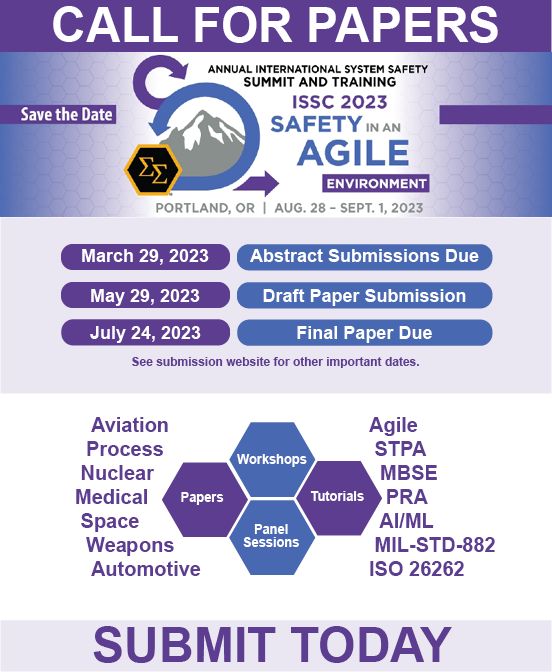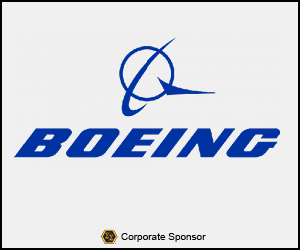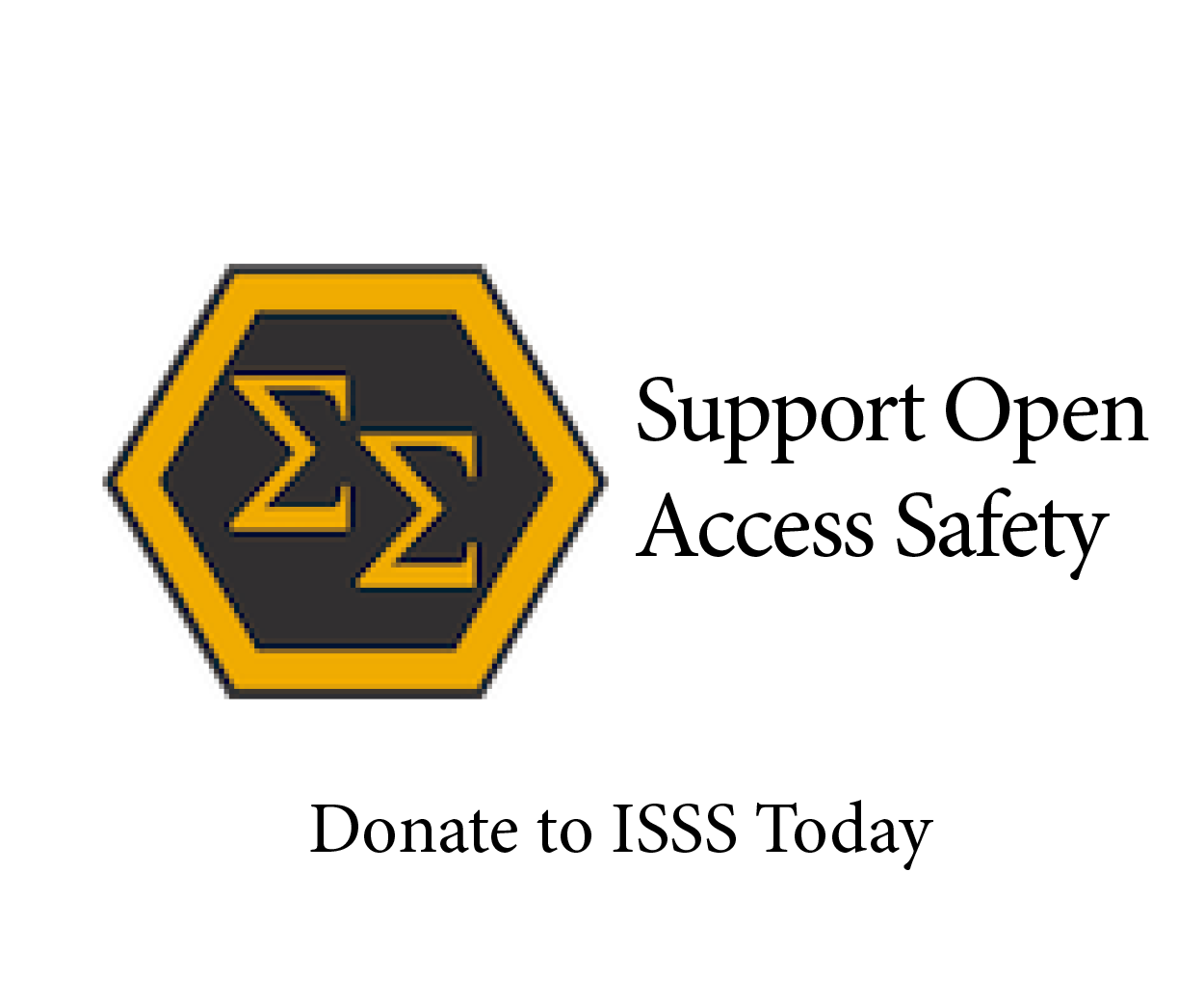'Technical Safety’ or ‘System Safety’? Why Names Matter
Keywords:
technical safety, system safety, functional safety, namesAbstract
By providing safety and risk management consulting services, we have the opportunity to be regularly involved with clients from a number of different industries. We often interact with professionals of varied trajectories and backgrounds, many of whom have never received comprehensive training in system safety. Those individuals are by no means less competent in their jobs; however, their schooling in system safety often comes from a senior colleague or mentor who held a safety-related position during a long career in a single industry. More often than not, the individual’s understanding of system safety is reduced to his or her limited exposure to this rich and diverse field.
References
Vincoli, J. W. Basic Guide to System Safety, John Wiley & Sons, 1993.
Department of Defense Standard Practice for System Safety. “MIL-STD-882D,” February 10, 2000.
“System Safety Links,” International System Safety Society, accessed September 13, 2013, http://www.system-safety.org/links/
Air Force Safety Agency, Kirtland Air Force Base. “Air Force System Safety Handbook (AFB NM 87117-5670),” July 2000.
International Electrotechnical Commission. “Functional Safety of Electrical/Electronic/ Programmable Electronic Safety-related Systems,” IEC 61508 International Standard, Part 4.
Civil Aviation Authority. “Safety management systems for commercial air transport operations,” CAP 712, April 2002.
U.S. Department of Labor Occupational Safety and Health Administration. “29 CFR 1910.119 Federal Regulation, Process safety management of highly hazardous chemicals,“ July 2011.
Norwegian Oil Industry Association (OSL). “Technical Safety,” NORSOK Standard S-001, Edition 4, February 2008.
U.S. Department of Energy Nuclear Regulatory Commission. “10 CFR Part 830 Federal Regulation, Nuclear Safety Management,” January 2011.
Salter, M. “Managing the Operational Safety Case in High-Risk Systems,” MS Thesis, University of York, Department of Computer Science, September 2006.
Stamatelatos, M. and H. Dezfuli. “Probabilistic Risk Assessment Procedures Guide for NASA Managers and Practitioners (NASA/SP-2011-3421),” Second Edition, Office of Safety and Mission Assurance NASA Headquarters, December 2011.

Downloads
Published
How to Cite
Issue
Section
Categories
License

This work is licensed under a Creative Commons Attribution-NoDerivatives 4.0 International License.









